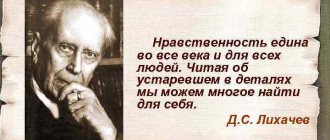Gottfried Wilhelm Leibniz short biography (1646 - 1716)
Gottfried Wilhelm Leibniz quotes.
German philosopher. Born in Leipzig. Leibniz's interests were multifaceted: in addition to philosophy, he left a serious mark on logic, mathematics and physics (independently of Newton, he developed differential and integral calculus), and was involved in jurisprudence, history and linguistics. He received his legal education at the University of Leipzig, and his philosophical education at Jena and Paris. He wrote his works in German and French. He was a member of the Royal Society of London, the Paris Academy of Sciences, the Academy of Natural Sciences in Rome, and in 1700 he became the founder and first president of the Berlin Academy of Sciences. He very productively and critically reworked the ideas of the main European philosophers from Plato and Democritus to Descartes and Hobbes, laying the basis for the development of German classical philosophy with his research. The main criteria of philosophy put forward by Leibniz were the universality and rigor of reasoning, the achievement of which was ensured by the implementation of four principles: 1. Consistency of possible, or conceivable, existence (the law of contradiction); 2. The logical primacy of the possible over the actual or existing;
3. Sufficient justification for the existence of this particular world or event (the law of sufficient reason);
4. Optimality and perfection of a given world as the basis of its existence.
Leibniz strictly distinguishes between the intelligible world and the phenomenal, sensually perceived world. The basis of being are countless indivisible substances-monads, each of which has the essential characteristics of “aspiration” and “perception”. Moreover, none of the monads can influence the other, but each is harmoniously connected with the other, thanks to the “pre-established harmony” created by God.
Not being able to penetrate into the life of another monad, each monad in its closed integrity represents and reflects all others and the entire world, thus acting as a “mirror of the Universe.” The harmony of monads is a kind of hierarchical ladder, at the head of which is a person who has the ability not only to aspiration and perception, but also to self-awareness.
The philosopher speaks about his theory of monads in his work “Monadology”.
Leibniz gives a philosophical understanding of theological problems in his work “Theodicy”. Leibniz's theory of knowledge is presented in New Experiments on the Human Mind, where he develops his original concept. Recognizing that without sensory perception intellectual activity would be impossible, he opposes the determination of the mind by sensory experience. Considering the well-known postulate of English empiricism - “There is nothing in the mind that would not have previously existed in the feelings” - Leibniz supplements it with a fundamental position: “except the mind itself.” This approach made it possible to pay great attention to possible knowledge, which corresponded to its ontological priorities. It is not surprising, therefore, that he developed the theory of probability and game theory, and in his work “On the Art of Combinatorics” he anticipated some of the provisions of modern mathematical logic. In general, Leibniz’s philosophy is distinguished by its fundamentality and productivity, which actively attracts modern philosophers to it.
Aphorisms from Leibniz
*** The present is always fraught with the future.
(present, future)
***
Men have never shown greater wit than in the invention of the game.
(a game)
***
To love is to find your own happiness in the happiness of another. Love is the tendency to find pleasure in the goodness, perfection, and happiness of another person.
(Love)
***
Every person has the inherent freedom to commit any act, that is, what he considers best.
***
People despise not so much vice as weakness and misfortune.
***
If geometry were as contrary to our passions and interests as morality, then we would also argue against it and violate it in spite of all evidence.
***
We are the freer the more we act in accordance with reason, and the more enslaved we are, the more we succumb to passions.
(Liberty)
***
Grief is the restlessness of the soul when it thinks of a lost good that it could have enjoyed longer, or when it is tormented by an evil it is currently experiencing.
(grief)
***
Music is the soul's unconscious exercise in arithmetic.
(music)
***
Music is the joy of the soul, which calculates without realizing it.
(music)
***
I maintain that a bad head, having auxiliary advantages and exercising them, can outperform the best, just as a child can draw a line on a ruler better than the greatest master by hand.
(head)
***
Moral necessity does little to interfere with freedom, for whoever chooses the best does not become less free for this; on the contrary, the most perfect freedom consists rather in the fact that nothing prevents one from acting in the best possible way.
(Liberty)
***
Libraries are treasuries of all the riches of the human spirit.
(book)
***
When any thing among God's creations seems to us worthy of blame, we must conclude that it is not sufficiently understood by us and that a wise man who would comprehend it would decide that it is impossible even to desire anything better.
***
Modest people, being only witnesses of an indecent act, experience sensations similar to those of shame.
(modesty, shame)
***
Our happiness does not and should not consist in complete satisfaction, in which there would be nothing left to desire, which would only contribute to the dullness of our mind. The eternal desire for new pleasures and new perfections is happiness.
(happiness)
***
The real world is the best.
***
Envy is a restlessness (displeasure) of the soul arising from the fact that another person has a good we desire, whom we no longer consider worthy of owning it.
(envy)
Gottfried Wilhelm Leibniz - born June 21, 1646, Leipzig, Electorate of Saxony, Holy Roman Empire. Saxon philosopher, logician, mathematician, mechanic, physicist, lawyer, historian, diplomat, inventor and linguist. Founder and first president of the Berlin Academy of Sciences. Leibniz, independently of Newton, created mathematical analysis - differential and integral calculus, combinatorics as a science, laid the foundations of mathematical logic, described the binary number system with the numbers 0 and 1, formulated the law of conservation of energy, in psychology put forward the concept of unconsciously "small perceptions" and developed the doctrine of unconscious mental life. Died November 14, 1716, Hanover, Brunswick-Lüneburg, Germany, Holy Roman Empire.Quotes, aphorisms, sayings, phrases - Gottfried Leibniz
- Ideas are the stuff of thoughts.
- The present is always fraught with the future.
- To exist is to be in harmony.
- The present is grandiose along with the future.
- He who is not in unity with himself is not free.
- It is not common for a wise person to waste energy beyond necessity.
- What is conceivable is possible, what is possible is conceivable.
- Music is the soul's unconscious exercise in arithmetic.
- People despise not so much vice as weakness and misfortune.
- Libraries are treasuries of all the riches of the human spirit.
- What has been proven by examples can never be considered completely proven.
- In general, when is a creature free? When it corresponds to its being.
- Nature is generous in her actions and thrifty in the causes she offers.
- Men have never shown greater wit than in the invention of the game.
- The eternal desire for new pleasures and new perfections is happiness.
- Love is the tendency to find pleasure in the goodness, perfection, and happiness of another person.
- I would walk 20 miles to listen to my worst enemy if I could learn anything from him.
- Every doctrine is true in what it affirms and false in what it denies or excludes.
- We are created to think. It is not necessary that we live, but it is necessary that we think.
- I never thought that my first act upon Your Majesty’s accession to the throne of England would be an apologia.
- I completely agree with Malebranche and Cicero when they say that man is not born for himself, but for others.
- We are the freer the more we act in accordance with reason, and the more enslaved we are, the more we succumb to passions.
- Language is the best mirror of the human spirit, and by carefully analyzing the meaning of words we could best understand the workings of the mind.
- I do not distinguish between nations or Fatherland; I prefer to achieve greater development of sciences in Russia than to see them averagely developed in Germany.
- The patronage of science has always been my main goal, but there was no great monarch who would be sufficiently interested in this matter.
- The country in which the development of science will reach the widest proportions will be the most dear to me, since such a country will raise and enrich all of humanity.
- To the question why an infinite number of monads actually exist, I answer: so that they are able to reveal all the richness of divine creation.
- What I wrote down at the age of fourteen, I re-read much later, and this reading always gave me a lively feeling of pleasure.
- The real riches of humanity are the arts and sciences. This is what most distinguishes people from animals and civilized peoples from barbarians.
- Envy is a restlessness of the soul arising from the fact that another person has a good we desire, whom we no longer consider worthy of owning it.
- True faith and true hope do not consist in empty words and even thoughts, but in practical thinking, that is, one must act as if it really happened.
- Without half-suffering, is there pleasure? He who has not tasted bitter does not deserve sweet and will not even be able to appreciate it. No truth should be neglected.
- The truth is more widespread than is believed, but very often it is embellished, covered up and even belittled, distorted by layers that spoil it and make it less useful.
- Grief is the restlessness of the soul when it thinks about a lost good that it could have enjoyed longer, or when it is tormented by the evil it is currently experiencing.
- The Spirit of God found the subtlest outlet in this miracle of analysis, a monster from the world of ideas, a dual entity located between being and non-being, which we call the imaginary root of the negative unity.
- Truly there are two labyrinths in the human spirit: one concerning the structure of the continuum and the other concerning the nature of freedom, and both of them stem from exactly the same source - infinity.
- Moral necessity does little to interfere with freedom, for whoever chooses the best does not become less free because of this; on the contrary, the most perfect freedom consists rather in the fact that nothing prevents one from acting in the best possible way.
- I took advantage of several days to spend them with the great Russian monarch; then I went with him to Herrengausen near Hanover and was with him there for two days. I am surprised in this sovereign as much by his humanity as by his knowledge and keen judgment.
- We expect three benefits from history: first of all, the pleasure of learning unusual things, then useful instructions, especially for life, and finally, a story about how the present came from the past, when everything is perfectly deduced from its causes.
- Two things have brought me great benefit, although they usually do harm. Firstly, I was, strictly speaking, self-taught, and secondly, in any science, as soon as I acquired the first concepts about it, I was always looking for something new, often simply because I did not have time to sufficiently assimilate the ordinary.
- I noticed, however, that my previous studies in history and philosophy greatly facilitated my understanding of legal science. I was able to understand all the laws without difficulty, and therefore did not limit myself to theory, but looked down on it as an easy job, and greedily seized upon the practice of law.
- As I grew older, I began to derive extreme pleasure from reading all kinds of historical stories. I did not let go of the German books that came into my hands until I had read them to the end. At first I studied Latin only at school and, without a doubt, I would have progressed with the usual slowness if not for an incident that showed me a completely unique path. In the house where I lived, I came across two books left by a student. One of them was the work of Livy, the other was the chronological treasury of Calvisius. As soon as these books fell into my hands, I devoured them.
Quotes about Leibniz
| True, Leibniz, like medieval philosophy, taught that the evil brought by eternal truths will be corrected by God in another world. Leibniz, with mysterious “ease,” expands on the theme that if God “here”, at the request of eternal truths, had to allow all kinds of imperfections, then “there” there will be no more imperfections. Why won't it happen? Will the eternal truths and the intellectus separatus, which gave birth to them and preserves them in its bosom, renounce their power to do evil in another world? Will the law of contradiction “there” and everything that it brings with it cease to be noli me tangere (don’t touch me) and free the Creator from itself? It is difficult to admit that the insightful Leibniz overlooked this question: but, enchanted by the ancient “you will be knowledgeable,” he seeks gnosis, only gnosis, which is for him eternal salvation. “Evil” only needs to be “explained”; this is all that is required of philosophy, whether it be Judeo-Christian or pagan: “I believe in order to know.” |
| — Lev Shestov, “Athens and Jerusalem”, 1938 |
- 1,01,11,21,3 Quoted from V. A. Henri. “The role of Leibniz in the creation of scientific schools in Russia” Uspekhi Fizicheskikh Nauk, T. 169, p. 1329—1331, 1999
- Quote by: K. Dushenko. Large dictionary of quotes and popular expressions. Litres, 2014.
- Mark Blok Apology of history or the craft of a historian. Chapter first
- Accessiones Historicae (1700), t. IV, 2, p. 53
Monadology







